WELCOME TO DEPARTMENT OF ELECTRONICS & COMMUNICATION ENGINEERING
THE DEPARTMENT OF ELECTRONICS & COMMUNICATION ENGINEERING started right from the inception of the college in the year 2005 with a vision of imparting high quality education to suit the global standards in Electronics & Communication Engineering. The student intake in the year 2005 was 60 which has been increased to 120 in the Academic year 2007-2008.
The department also offers a Post Graduate course in VLSI System Design started in the year 2011with an intake of 18.
The students are encouraged to participate in workshops, industrial internship, industrial visits and seminars; along with the projects assigned during the course, these activities enable them to broaden their outlook and build in professionalism that makes their transition from college to industry smoother after graduation.
Vision of the Department
To become a center of excellence and to produce high quality, self motivated, creative and ethical engineering and technologists, contributing effectively to Electronics and Communication Engineering.
Mission of the Department
To impart high quality in
Electronics and communication engineering education through innovative teaching learning
processes in order to Maximize knowledge transfer.
To facilitate graduates
define, design, and solve engineering problems in the field of Electronics and
communication Engineering using various Electronic design automation (EDA)
tools.
To carry out high quality
research leading to the creation and commercialization of intellectual property
To inculcate team work, imbibe
leadership qualities, professional ethics and social responsibilities in students
About Dr. S Kishore Reddy
Dr. S Kishore Reddy is currently working as Vice Principal & HOD, Associate professor, Electronics &Communication Engineering, Avanthi Institute of Engineering &Technology, Telangana, and Hyderabad, India. He is having totally 19 years of teaching experience in 07years international experience, His main research includes VLSI design,wireless communications. He has published 05 books; He has published 53 papers in reputed national & international Journals. He has participated in different national & international conferences. he design and publish 02 Indian patents, chief Editorial Board membership in 2 international journals, hé recived best Project coordinator awards from IETE , KYIE, Editorial Board member of 140 international journals He is having life memberships of MIAENG, MIACSIT, MISMTE, LMISTE, SMIACSIT, MIAENG, MAIRCC, SMUACEE, MICE, MSDIWC, MIIRJC.
Always work actively to break down the barriers that students experience to their learning, which can come in many forms:
- In understanding how new knowledge relates to existing knowledge
- Understanding where new information belongs on their knowledge tree
- In understanding how a concept is relevant to them & their future
- In connecting with the teaching style of their teacher
- Projects and Seminars based on Emerging Technology.
Programs Offered
| ELECTRONICS & COMMUNICATION ENGINEERING | |||
| Branches | Name of the Courses | Seats | |
|---|---|---|---|
| B.Tech | Electronics & Communication Engineering | 120 | |
| M.Tech | VLSI System Design | 18 | |
CO's, PO's & PEO's
PROGRAM OUTCOMES (POs)
Apply the knowledge of mathematics, science, engineering fundamentals, and an engineering specialization to the solution of complex engineering problems.
Identify, formulate, research literature, and analyze complex engineering problems reaching substantiated conclusions using first principles of mathematics, natural sciences, and engineering sciences.
Design solutions for complex engineering problems and design system components or processes that meet the specified needs with appropriate consideration for the public health and safety, and the cultural, societal, and environmental considerations.
Use research-based knowledge and research methods including design of experiments, analysis and interpretation of data, and synthesis of the information to provide valid conclusions.
Create, select, and apply appropriate techniques, resources, and modern engineering and IT tools including prediction and modeling to complex engineering activities with an understanding of the limitations.
Apply reasoning informed by the contextual knowledge to assess societal, health, safety, legal and cultural issues and the consequent responsibilities relevant to the professional engineering practice.
Understand the impact of the professional engineering solutions in societal and environmental contexts, and demonstrate the knowledge of, and need for sustainable development.
Apply ethical principles and commit to professional ethics and responsibilities and norms of the engineering practice.
Function effectively as an individual, and as a member or leader in diverse teams, and in multidisciplinary settings.
Communicate effectively on complex engineering activities with the engineering community and with society at large, such as, being able to comprehend and write effective reports and design documentation, make effective presentations, and give and receive clear instructions.
Demonstrate knowledge and understanding of the engineering and management principles and apply these to one’s own work, as a member and leader in a team, to manage projects and in multidisciplinary environments.
Recognize the need for, and have the preparation and ability to engage in independent and life-long learning in the broadest context of technological change.
PROGRAM SPECIFIC OUTCOMES(PSO’s
-
The Electronics and Communication Engineering Graduates will be able to
- Be proficient and employment ready with career development skills in both software and hardware through Industry oriented mini & major projects, internship, industry visitsseminars and workshops to ethically serve the needs of the society.
- Develop hardware / software for components / systems for applications in Signal processing, VLSI, Communication, Networking, Computer-based Systems and/or pursue Higher Studies / Research with a strong base in Electronics and communicationEngineering
Course Outcomes (CO's)
Faculty
| S.No | Faculty Name | Course |
|---|---|---|
| 1 | Dr KISHORE REDDY SHILAPUREDDY | ECE |
| 2 | Dr VANKAYALAPATI NAGARAJU | M TECH VLSI |
| 3 | SRINIVAS GANUGUNTLA | ECE |
| 4 | SURYAPRAKASH DUSARI | M TECH VLSI |
| 5 | SAGAR SABBINENI | ECE |
| 6 | BASHIPAKA VENKATESHWARLU | ECE |
| 7 | NAGESH ERUGU | ECE |
| 8 | KOTTA SHILPA | ECE |
| 9 | SONY KANDA | ECE |
| 10 | BHANOTHA DASHARADHA | ECE |
| 11 | VASANTHA NAGARAJU | ECE |
| 12 | JALADI MERINA | ECE |
| 13 | RAJITHA ELAGONDA | ECE |
| 14 | MANVITHA DAVU | ECE |
| 15 | SHAIK ASIFA | ECE |
| 16 | POTHAGALLA SYAMALA | OTHERS ECE |
| 17 | ANAGANTI PRAKASH REDDY | ECE |
| 18 | LAKSHMI SOWJANYA DEVI SABBELLA | ECE |
| 19 | PADABAKKALA PAVAN KUMAR | ECE |
| 20 | THADOJU SHWETHA | OTHERS ECE |
| 21 | P V RAJU | ECE |
| 22 | Dr CHANDRASHEKAR GURRALA | M TECH VLSI |
STUDENT ACHIEVEMENTS
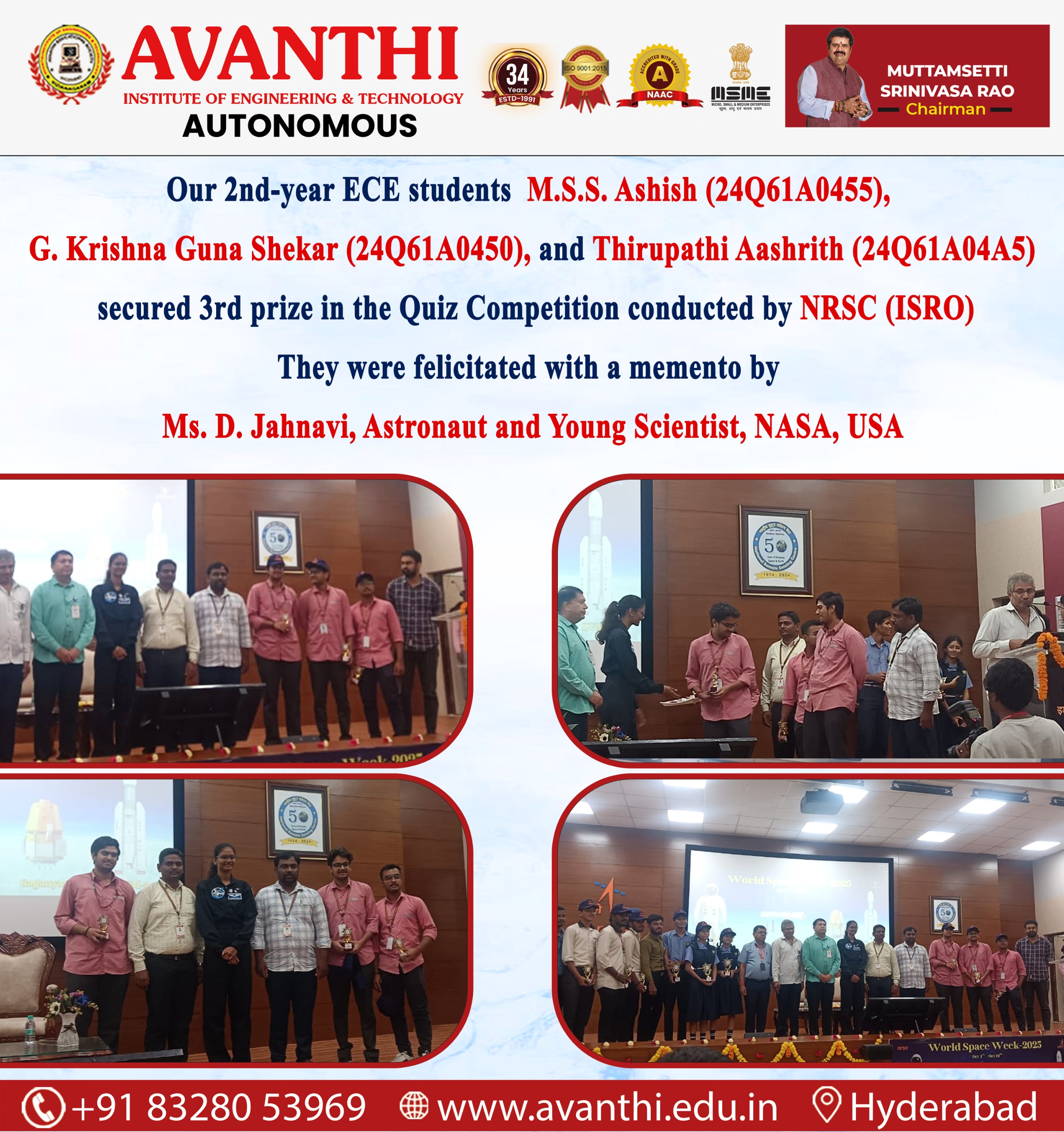
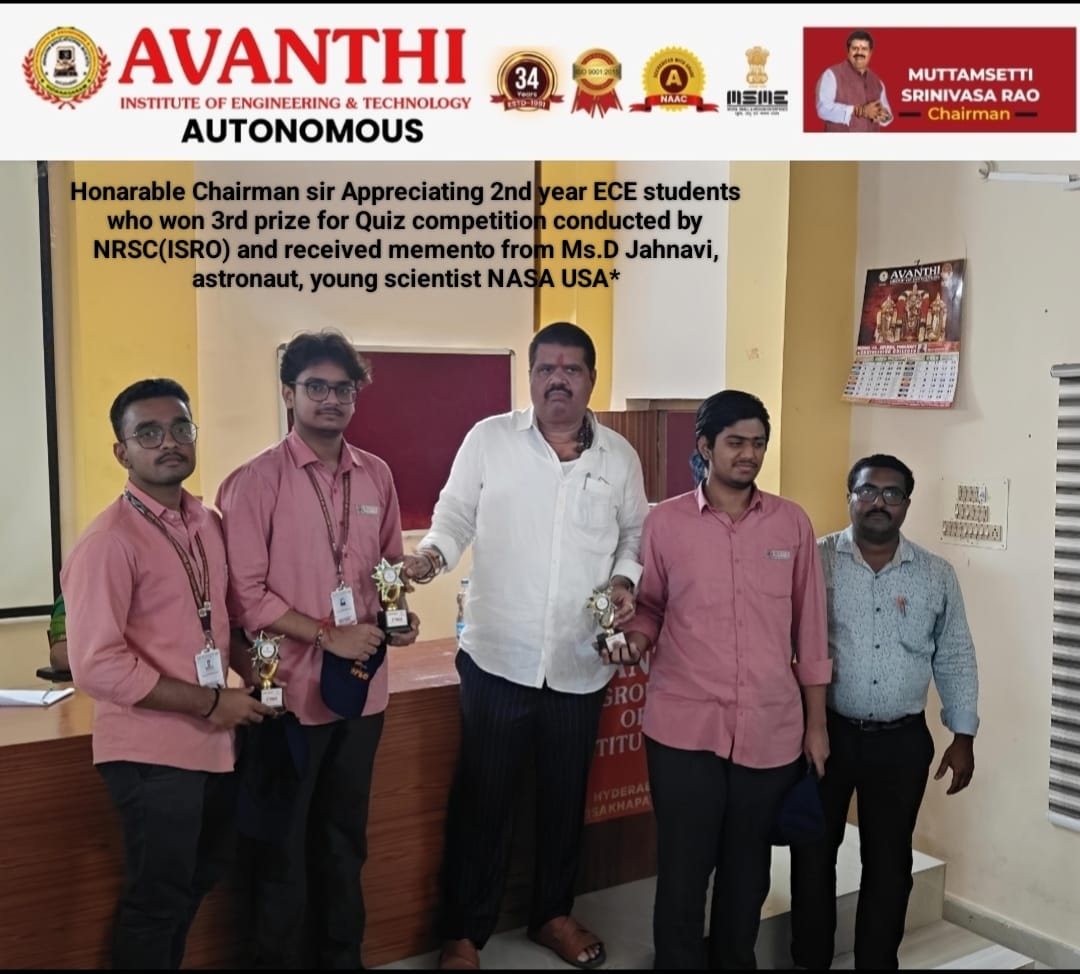
ACTIVITIES

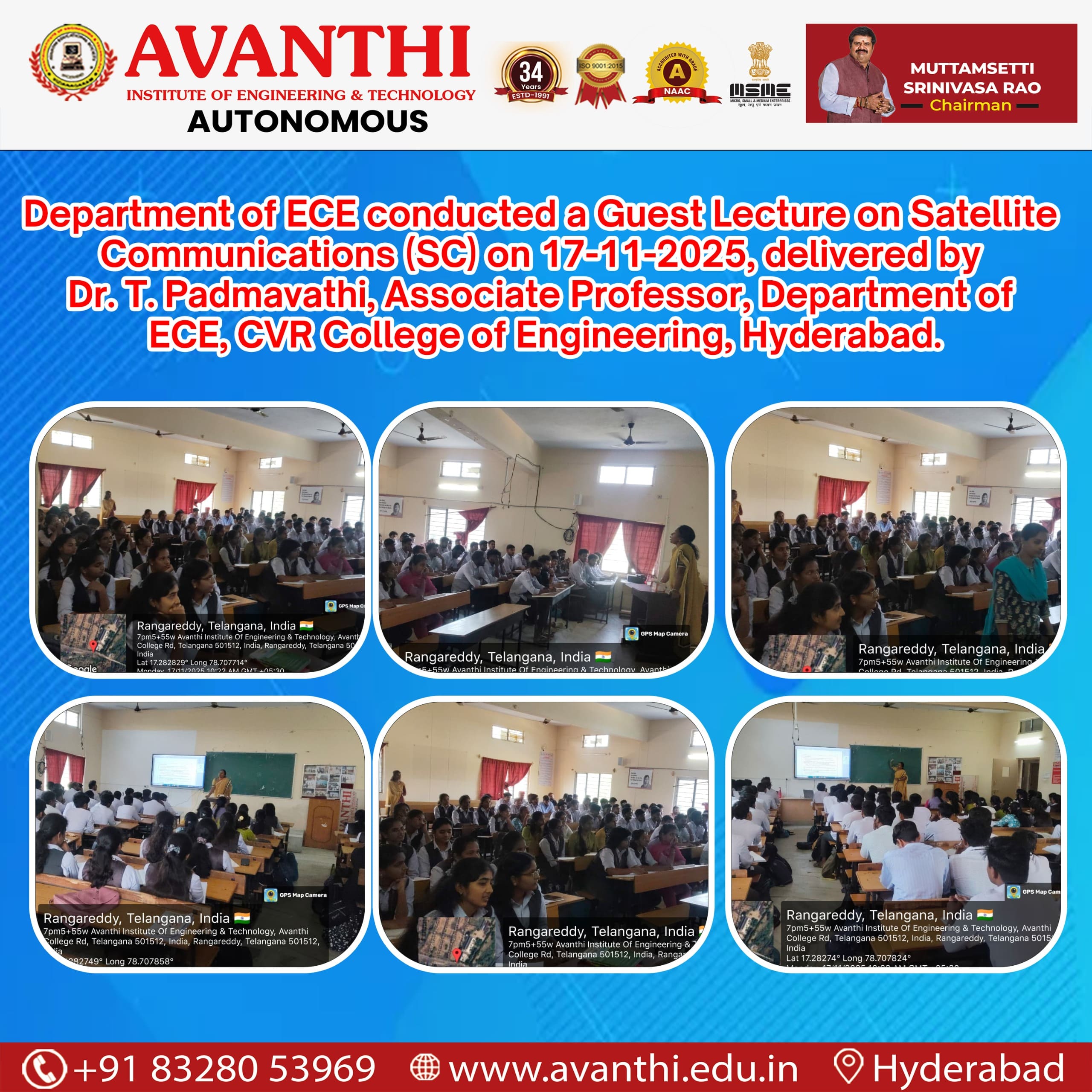
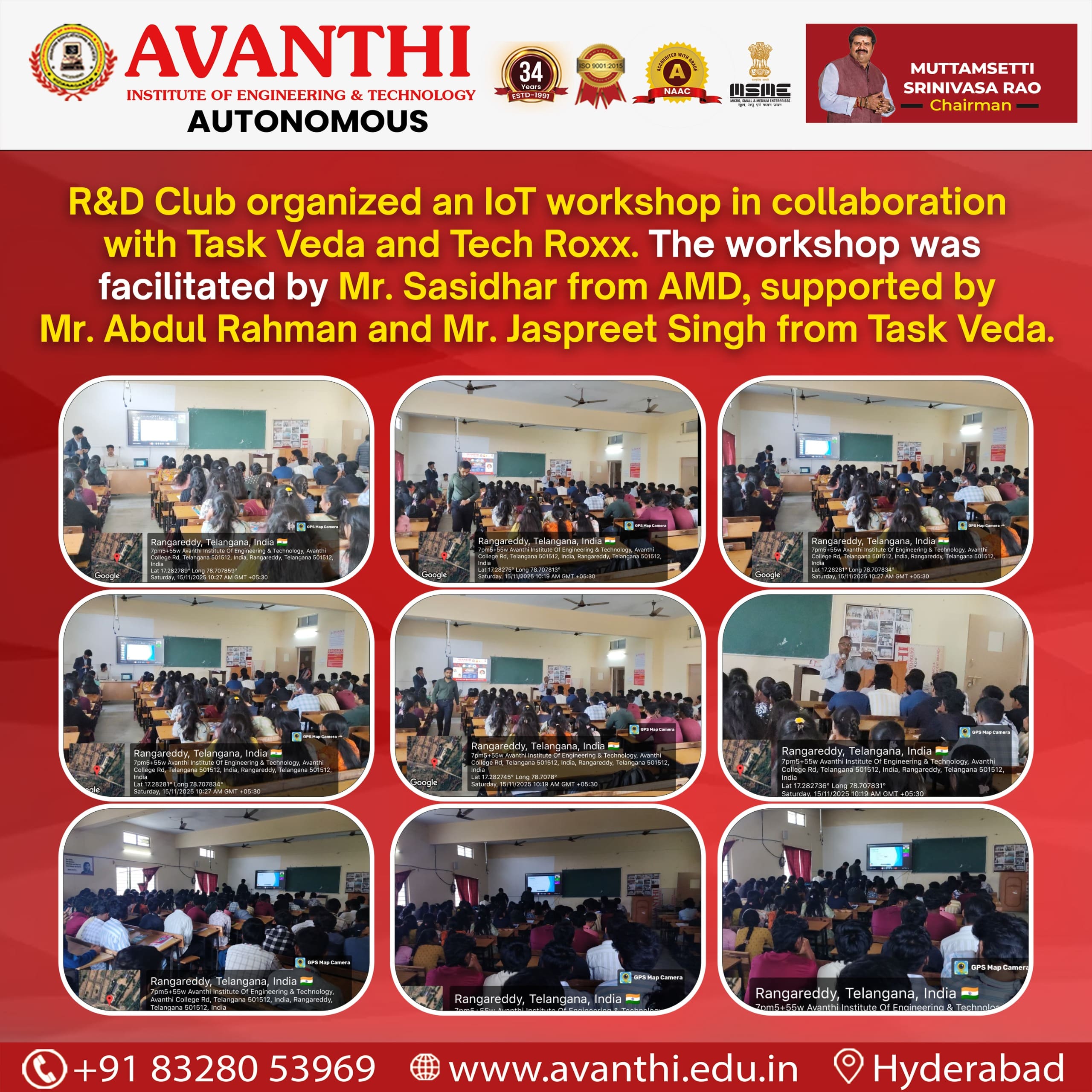

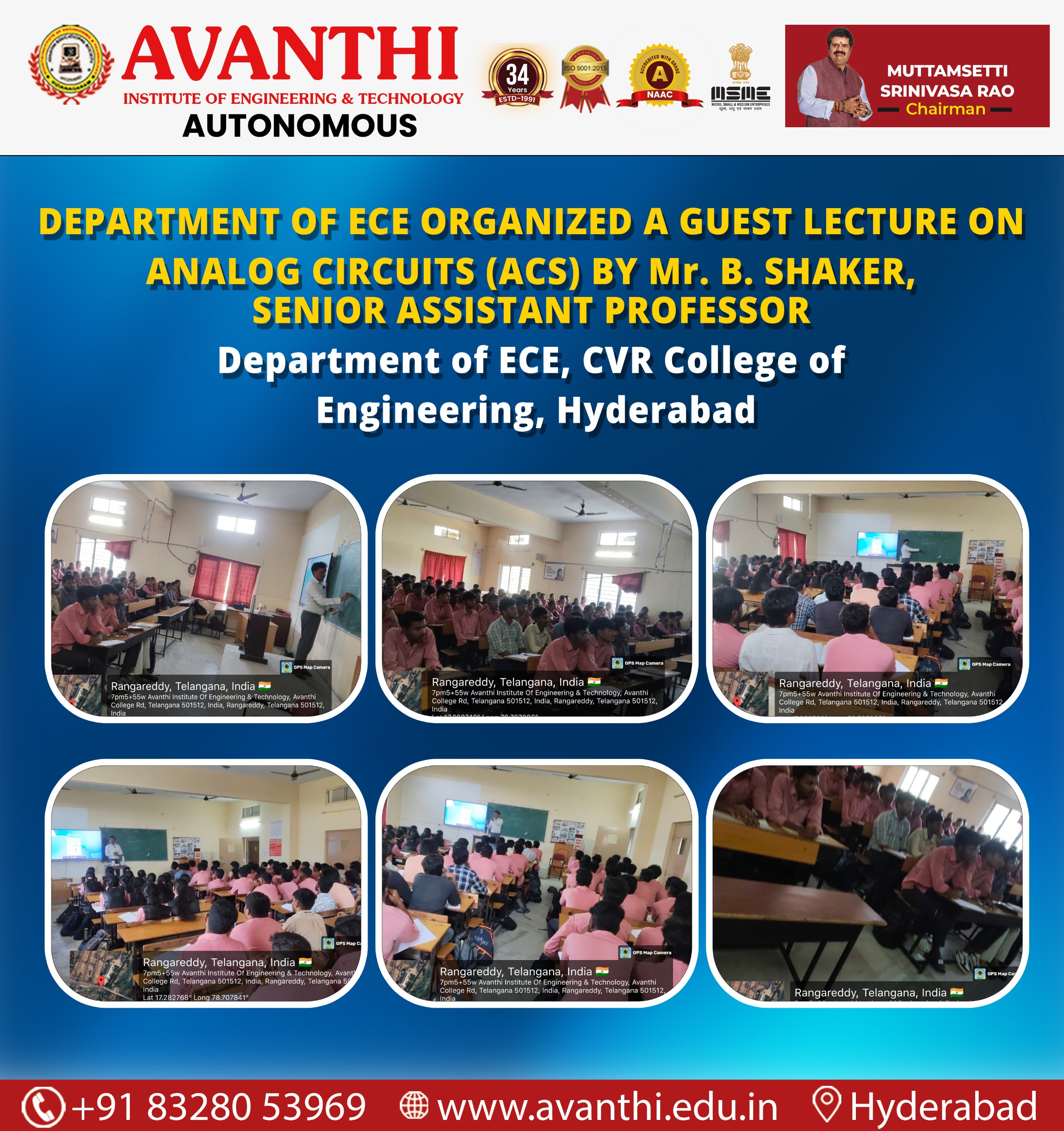
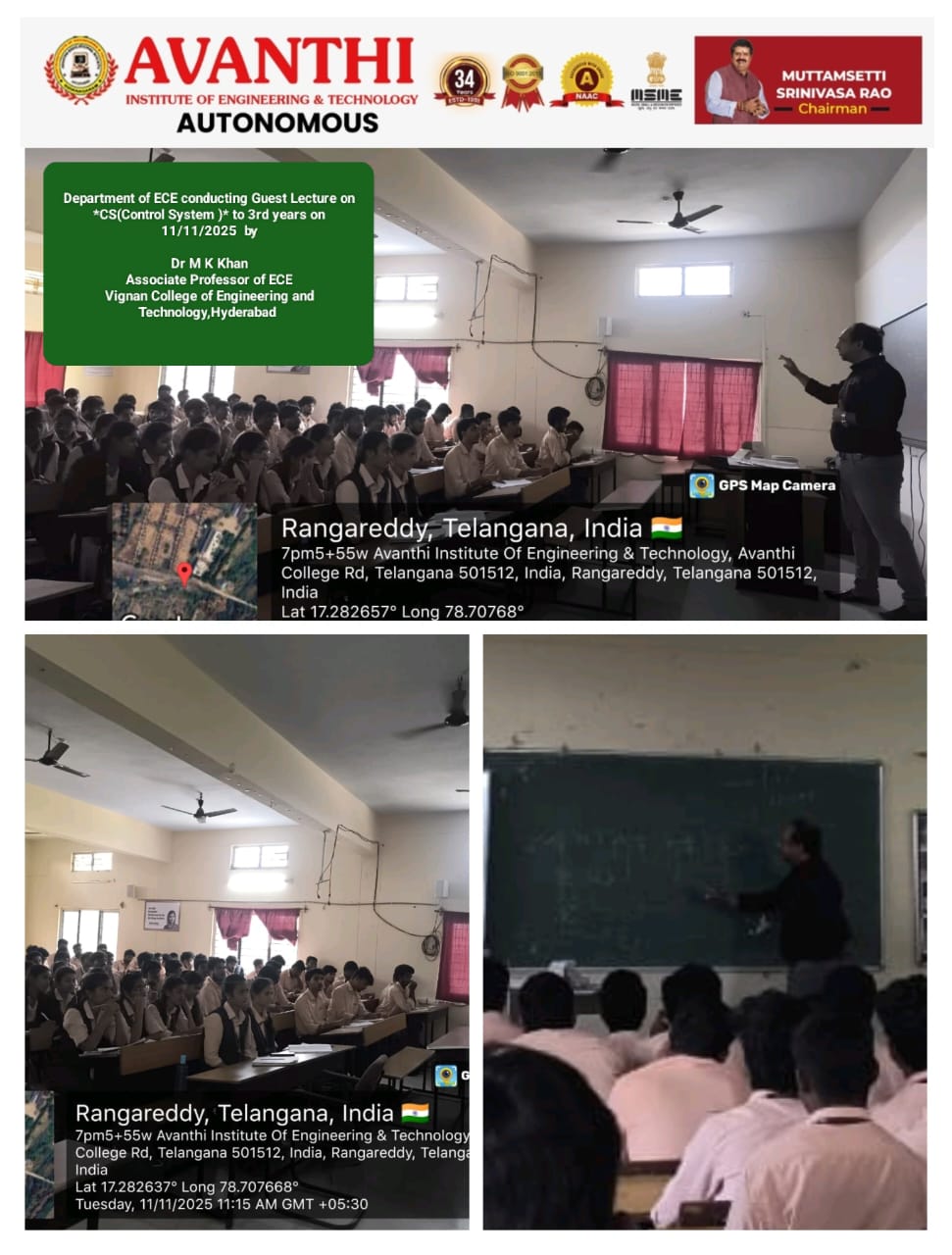
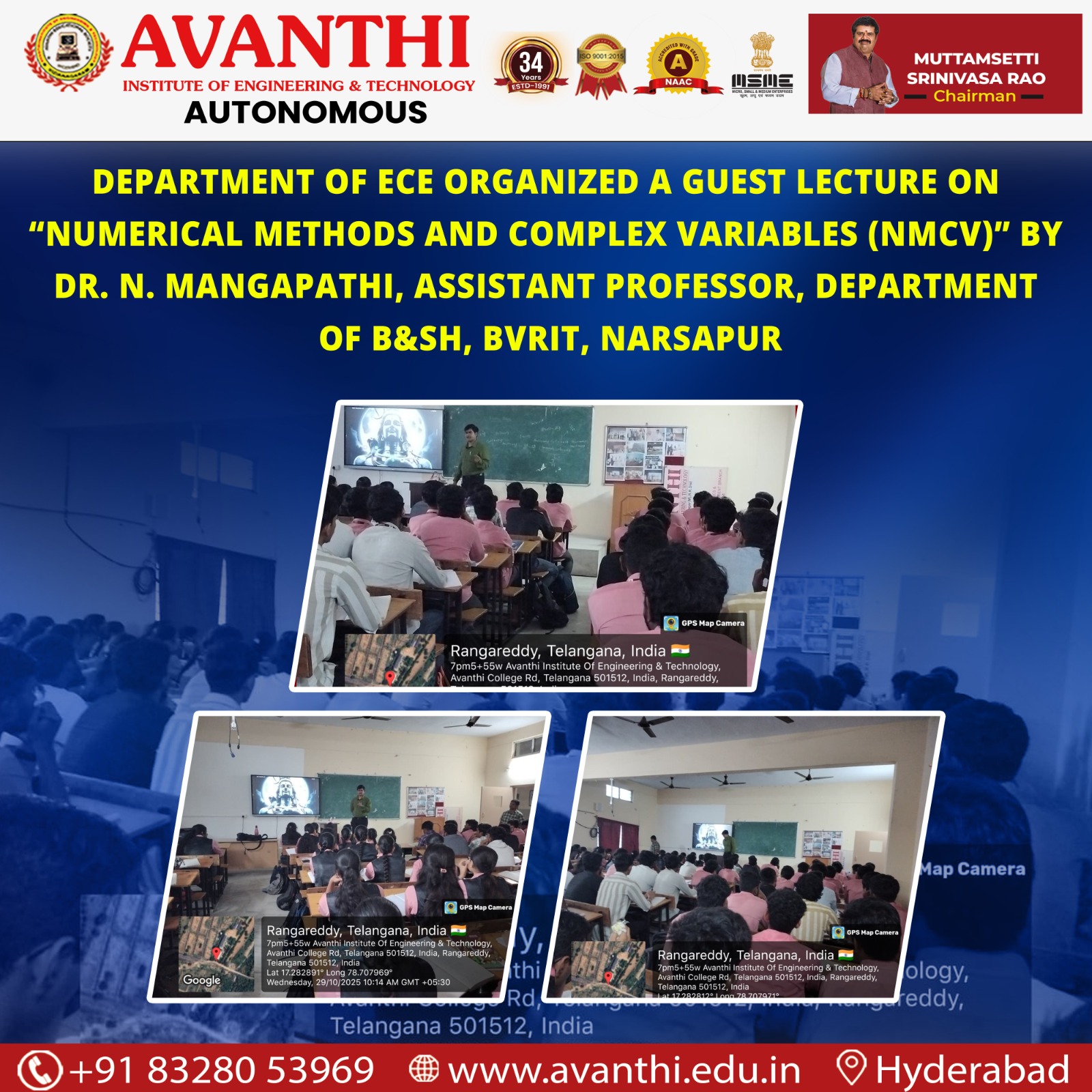


Labs in ECE Department:

>ADVANCED COMMUNICATION LAB

ANALOG AND DIGITAL COMMUNICATION LAB
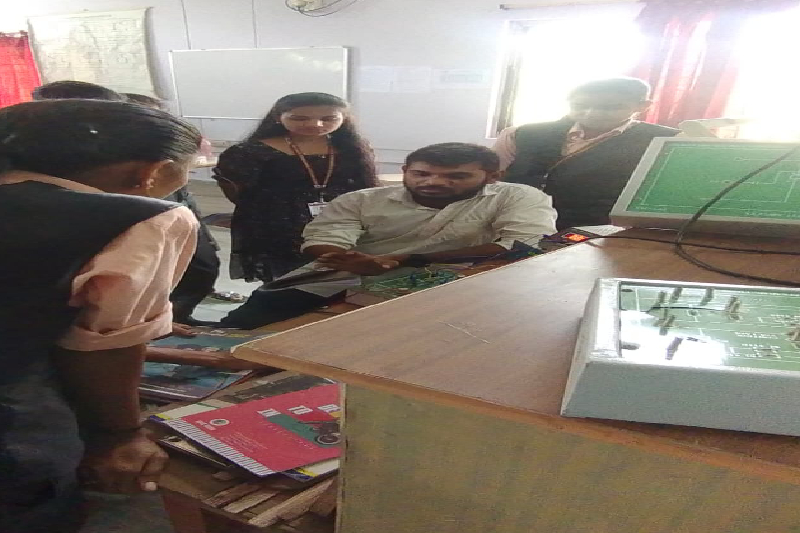
ANALOG ELECTRONICS LAB
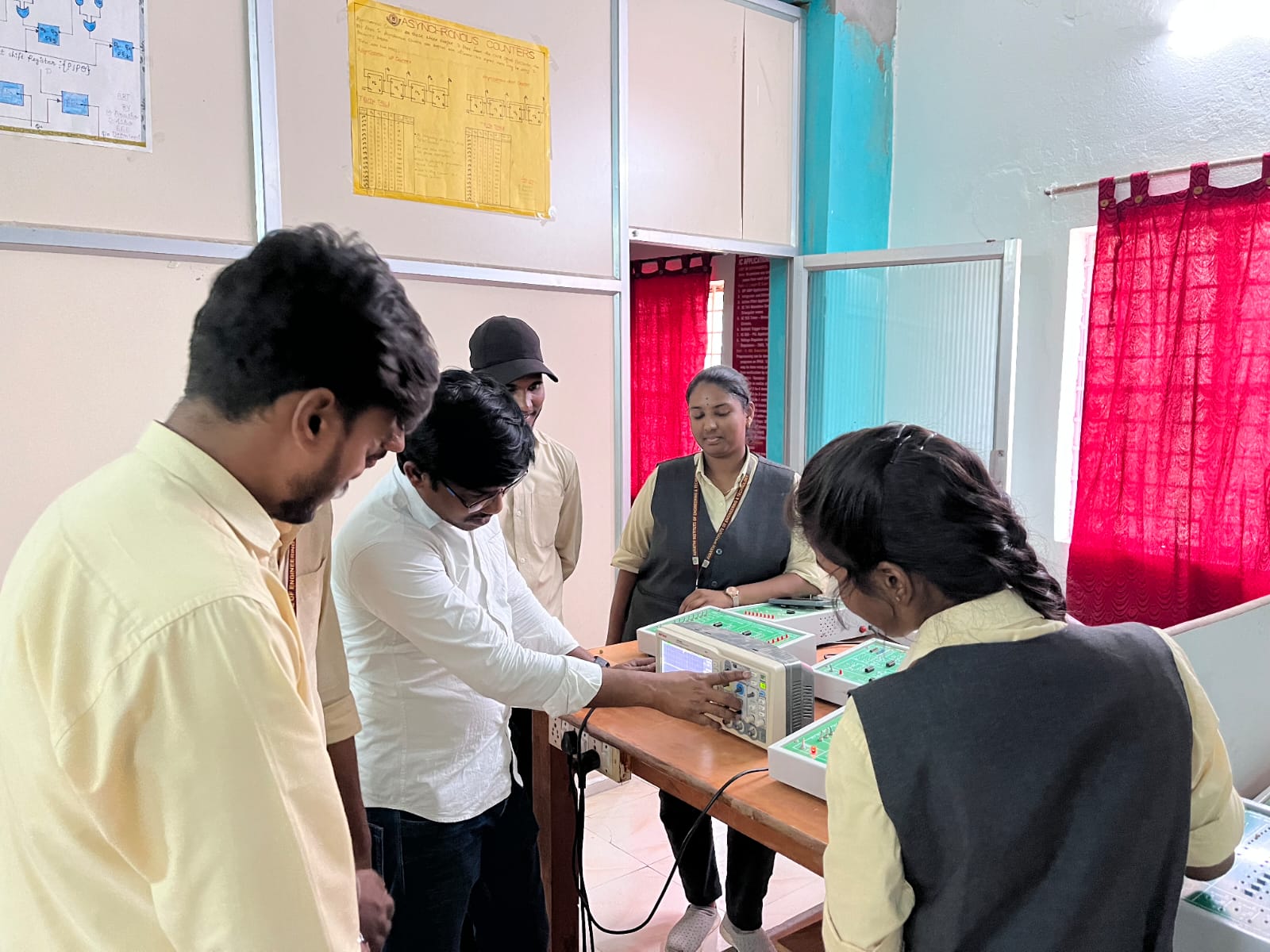
DIGITAL ELECTRONICS LAB
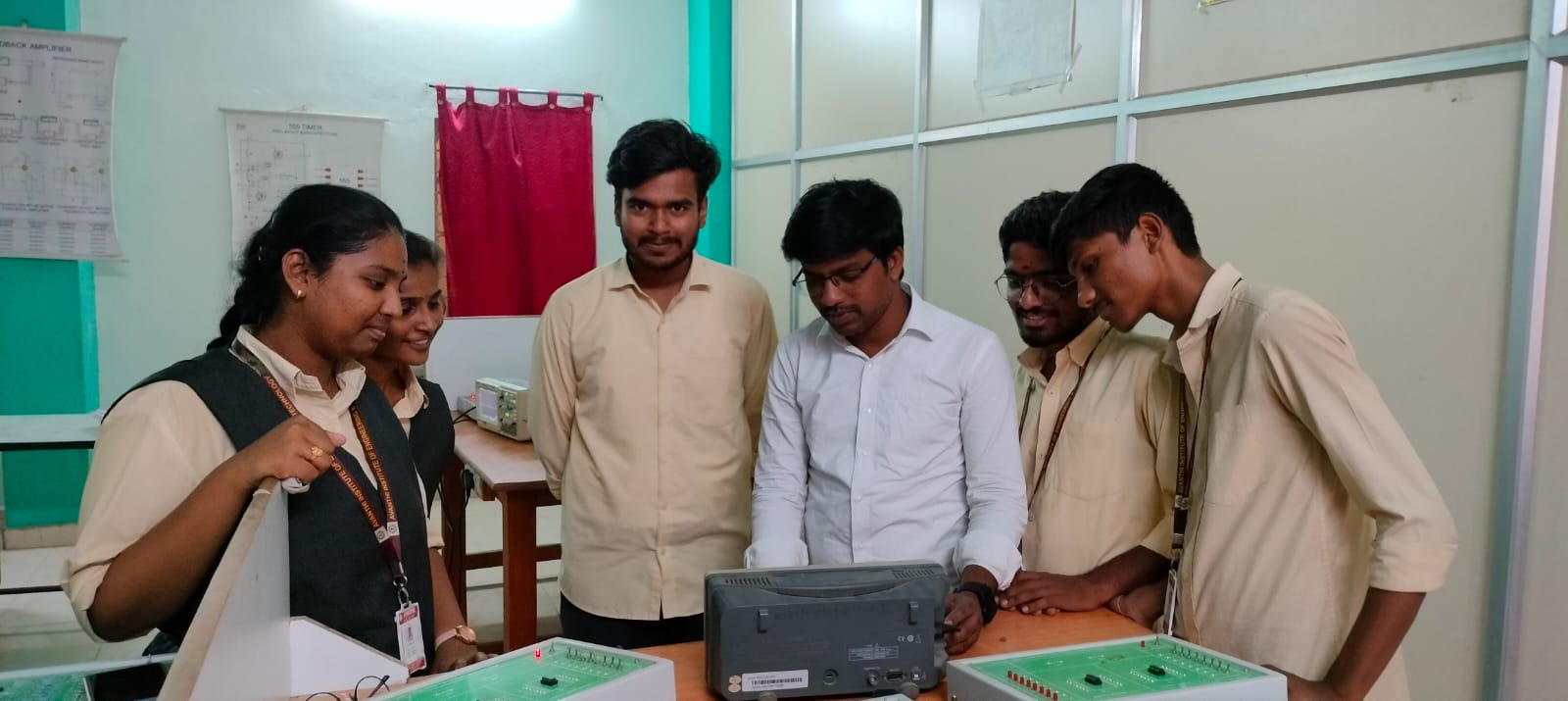
DIGITAL LOGIC DESIGN LAB
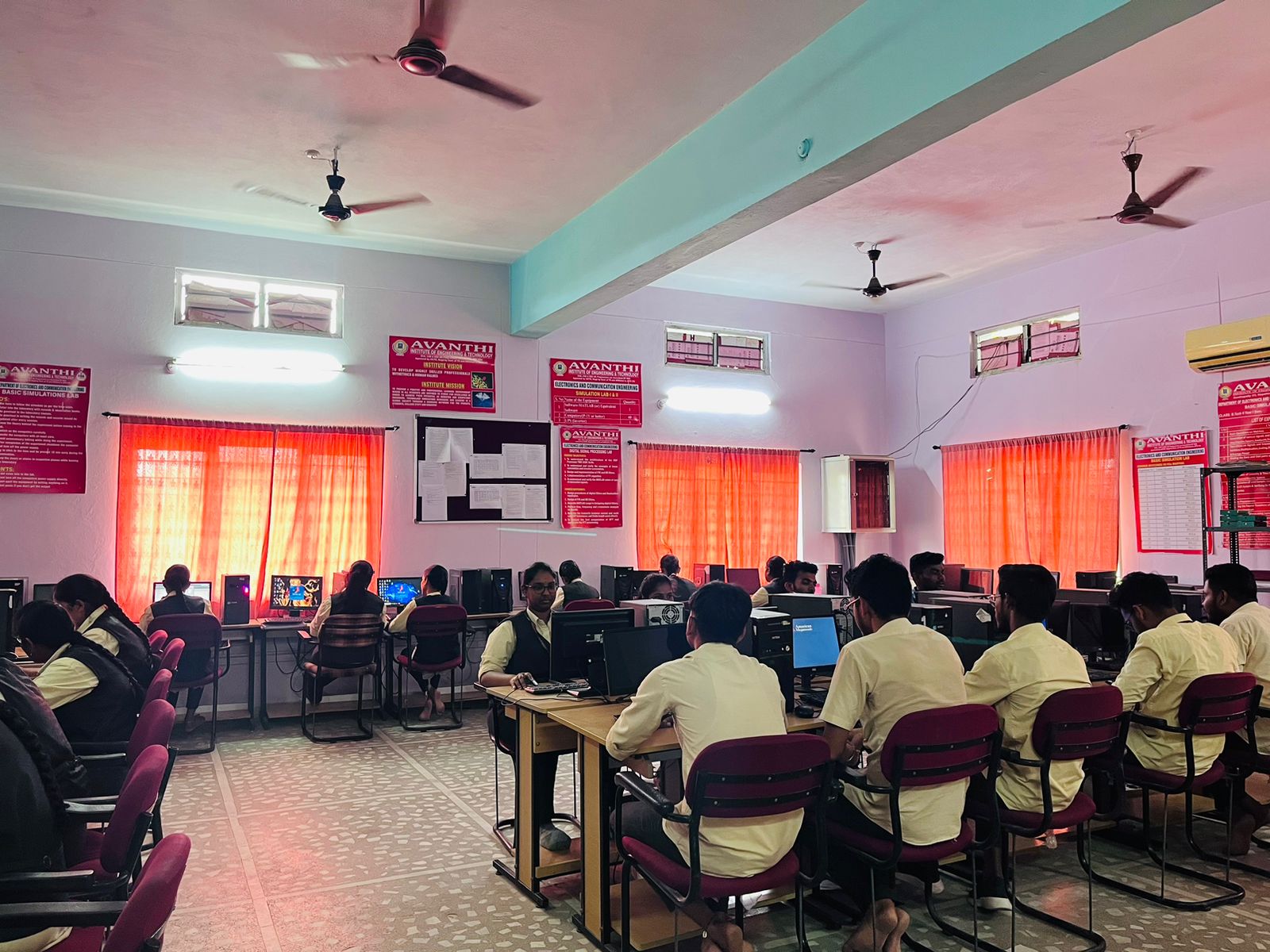
DIGITAL SIGNAL PROCESSING LAB

DIGITAL SYSTEM DESIGN LAB
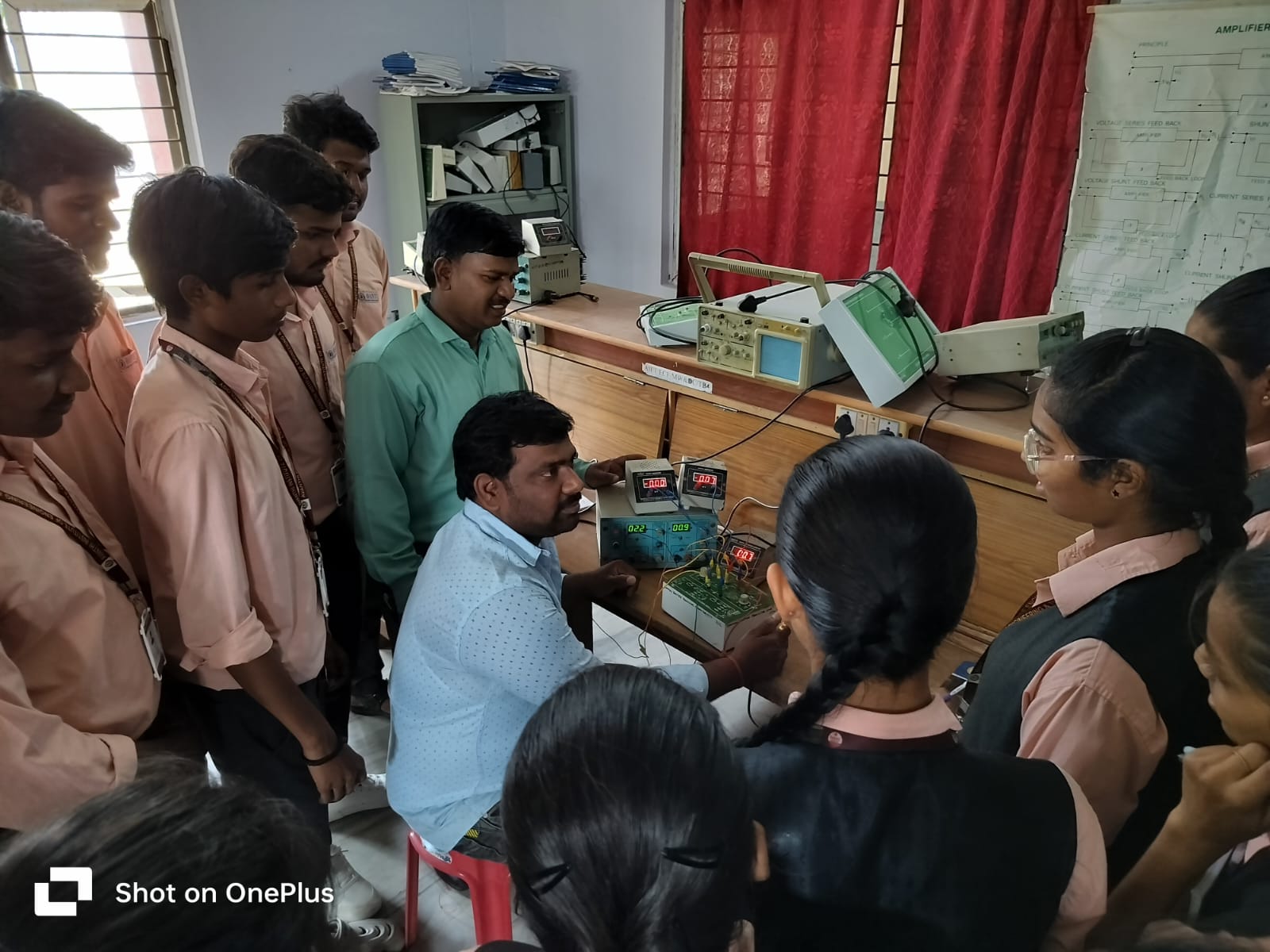
ELECTRONICS AND CIRCUIT ANALYSIS LAB
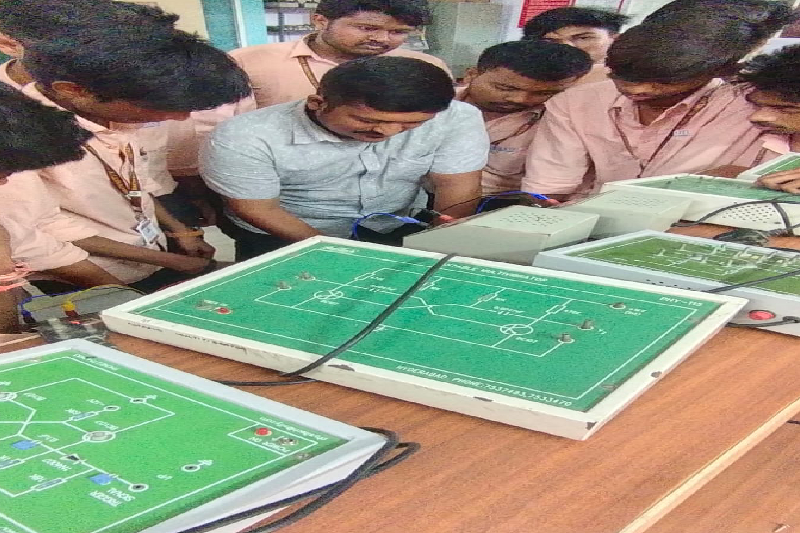
ELECTRONICS AND DEVICES LAB

LINEAR AND DIGITAL IC LAB

MICROPROCESSOR AND MICRO CONTROLLER LAB
Short Term Goals:
- To achieve highest percentage of pass in University examinations.
- To train students in a wide range of management skills and operating techniques.
- To make the students competent to build, motivate and lead project teams effectively.
- To organize life skills programmes so that the students can communicate coherently, rationally and convincingly.
- To receive NBA Accreditation and ISO Certification.
- To provide an environment most conducive to learning and create an intellectual atmosphere.
- To encourage students participation in Non Academic activities.
- To attain cent percent placements
Long Term Goals:
- To be a provider of quality Education on par with National Institutes to attain the status of a University.
- Formulate various programmers to provide quality education.
- Develop the personality of students to form responsible members of society.
- To undertake nationally acknowledged Research and Development works by forging alliances with Research Organizations, and Industries.

